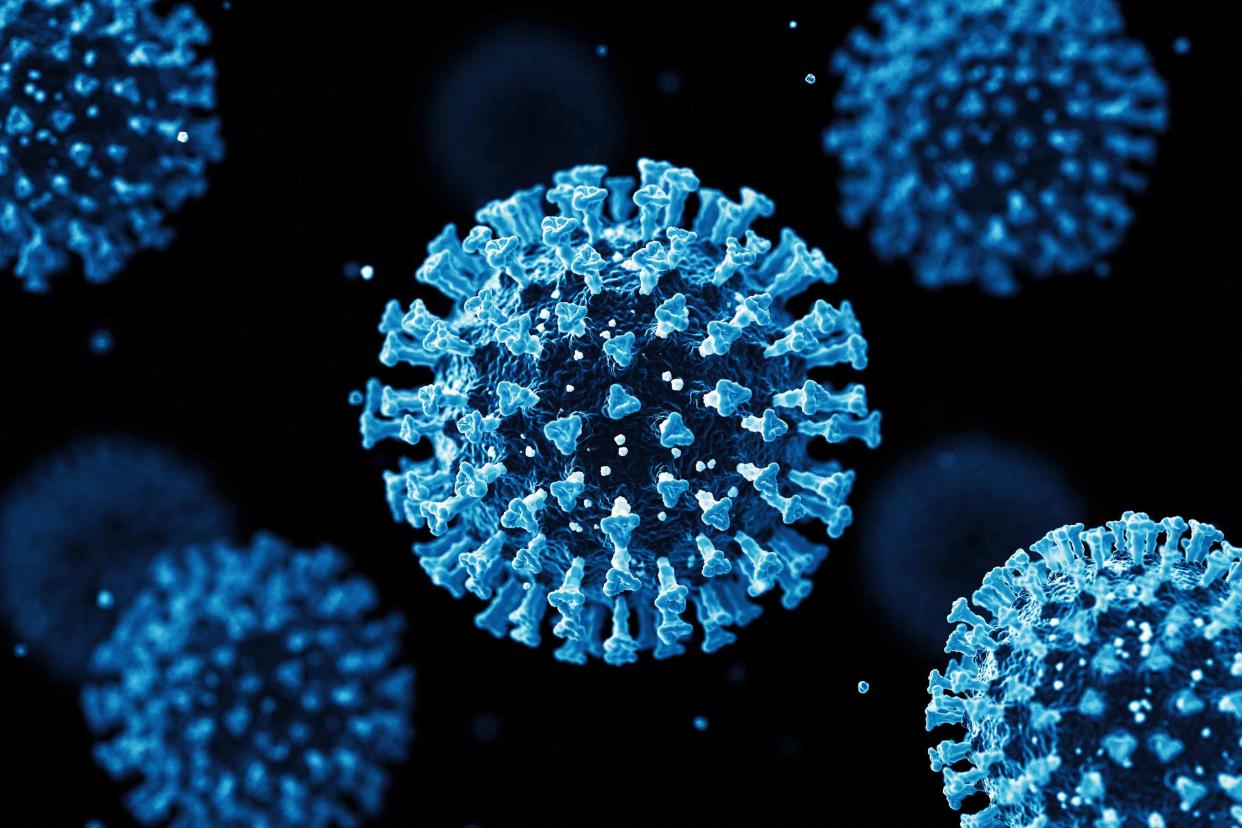What You Need to Know About the KP.2 'FLiRT' COVID Variant

BlackJack3D / Getty Images
- Oops!Something went wrong.Please try again later.
Fact checked by Nick Blackmer
Key Takeaways
The KP.2 variant is steadily spreading in the U.S.
Also known as a ‘FLiRT’ variant, KP.2 does not seem to be more infectious than JN.1.
KP.2 is expected to become the most common variant in the U.S.
It’s common for viruses to mutate, and SARS-CoV-2, the virus that causes COVID-19, is no exception. A slew of variants have developed since the start of the pandemic, and some have been more noteworthy than others.
A new variant gaining attention is KP.2, part of a larger group known as the FLiRT variants. These variants are offshoots of Omicron and get their name from their spike protein mutations: The amino phenylalanine (abbreviated as F) replaces the amino acid leucine (abbreviated as L), while the amino acid arginine (R) is replaced by threonine (T).
As KP.2 appears around the world, here’s what you need to know.

Related: A Timeline of COVID-19 Variants
Where KP.2 Has Spread
It’s not clear where the KP.2 variant originated. However, it’s been detected in the U.S., United Kingdom, and Canada. It is not currently the dominant strain anywhere, but it’s quickly becoming more common in several countries.
“It makes up about 20% of the infections in the U.K. and about 25% of the infections here,” William Schaffner, MD, an infectious disease specialist and professor at the Vanderbilt University School of Medicine, told Verywell. “It wouldn’t be surprising if this becomes the most common variant in the next month or two in the U.S.”
Spread in the U.S.
The KP.2 variant has quickly spread in the U.S. This variant made up less than 4% of COVID cases in the country in late March and has steadily caused a greater proportion of infections each week.
Why Do Viruses Mutate?
It’s normal for viruses to mutate. “There will always be new variants arising for all respiratory viruses,” Amesh A. Adalja, MD, senior scholar at the Johns Hopkins Center for Health Security, told Verywell. “This is how evolution works.”
Given that the general population now has a high level of immunity against COVID, the virus needs to mutate in order to survive.
Is KP.2 More Contagious?
Preliminary data show that while KP.2 is more transmissible, it has a 10.5-fold lower level of infectiousness than JN.1, which is currently the dominant strain in the U.S.
Still, “it’s expanding in the population, which means it must have some advantage over JN.1,” Thomas Russo, MD, professor and chief of infectious disease at the University at Buffalo in New York, told Verywell. This particular variant has four new mutations, including three in the spike protein, which is what the virus uses to latch onto your cells and infect you.
Currently available information also does not suggest that KP.2 is more severe than previous variants, Schaffner said.
Risk of Reinfection
There is no hard and fast data on the risk of reinfection from KP.2 if you’ve already had COVID. However, doctors said you’re likely to be reinfected if it’s been a while since you last had the virus.
“Protection wanes over time and it wanes more rapidly in older people, as well as those who are frail,” Schaffner said. “That’s why the program in the U.S. is to get everyone re-vaccinated at least on an annual basis.”
Most people can expect protection for up to six months after an initial infection, Russo said.
Will Vaccines Work Against KP.2?
The KP.2 variant “could be more immune evasive” than previous strains, Schaffner said. He cites early lab data that show this variant is more evasive of antibodies that people have developed.
“KP.2 is a little more distant from the protection we get in the vaccines, although the vaccines in the lab have been shown to provide protection,” he said.
Russo also pointed out that many people haven’t had the updated vaccine. “The uptake of the vaccine was less than excellent this fall,” he said. “It’s imperfect against preventing infection but pretty good at preventing hospitalization and severe disease.”
What This Means For You
Experts are not particularly worried about the KP.2 variant and more than other forms of COVID. “This is not a cause for concern,” Schaffner said. However, Russo said that this is a reminder that COVID is still around. “The virus continues to evolve and is trying to be immune evasive,” he said.
The information in this article is current as of the date listed, which means newer information may be available when you read this. For the most recent updates on COVID-19, visit our coronavirus news page.
Read the original article on Verywell Health.

